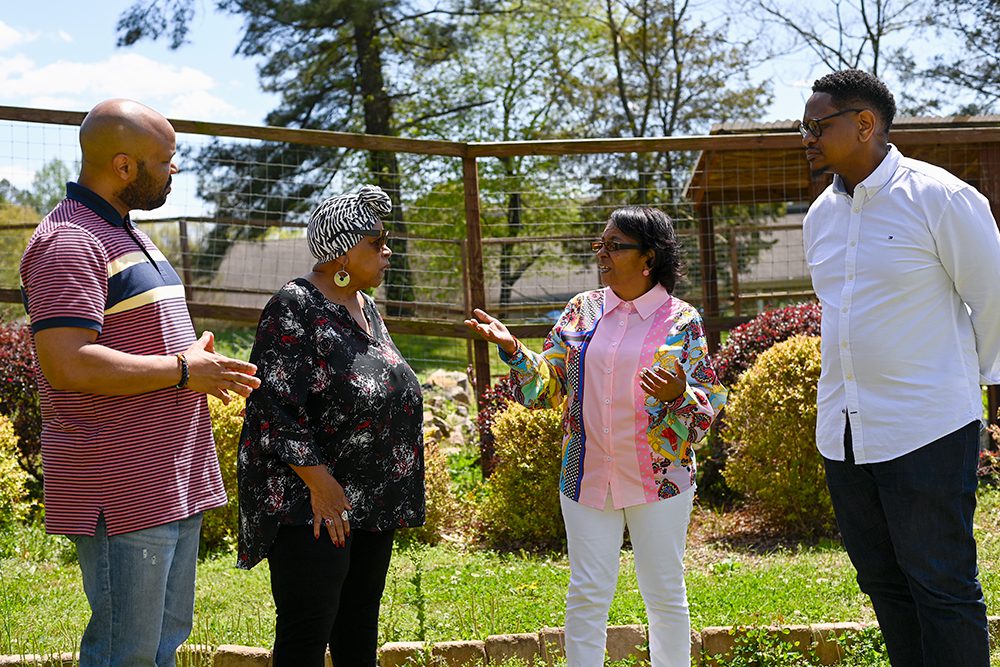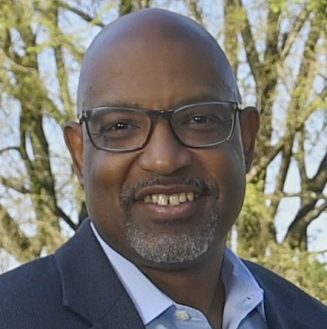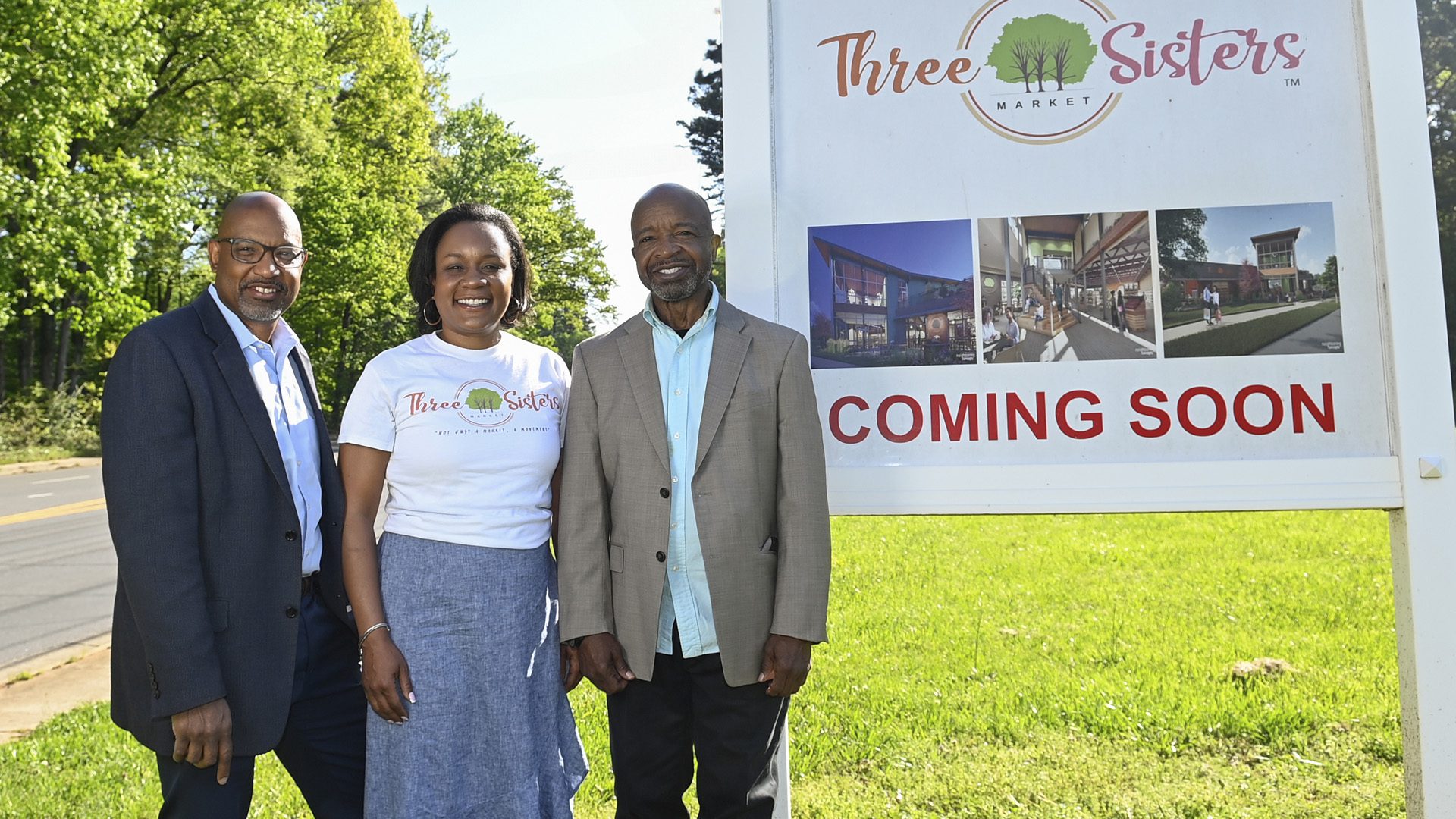THE POWER
OF
PARTICIPATORY
ACTION
RESEARCH

Guy Cousins, Beverly Clark, Brenda Campbell and Thomas Farrow are among community leaders in Charlotte who have a vested interest in the Three Sisters Market.
By Byron P. White

Byron P. White, urbanCORE
The dramatic success that has been made toward establishing the Three Sisters Market, the first grocery store on West Boulevard in 35 years, is the first — but not the last — accomplishment resulting from ongoing, collective work of community leaders and university researchers in Charlotte.
The collaborative process that produced “Tackling Food Insecurity in West Charlotte,” the 2021 report outlining challenges and solutions related to that neighborhood’s food desert, is being duplicated in five additional Corridors of Opportunity projects in the Queen City. These are being coordinated by urbanCORE at UNC Charlotte and supported by a gift from Bank of America, headquartered in Charlotte.
Through its corporate foundation, Bank of America has committed approximately $1 million for urbanCORE to lead the replication process — now called the Community Innovation Incubator — across the city. For UNC Charlotte and urbanCORE, the investment presents an opportunity to demonstrate the power of participatory action research to accomplish a key priority outlined in Shaping What’s Next, UNC Charlotte’s 10-year strategic plan: co-producing transformative solutions to societal issues and challenges.

Feeding the Future of West Boulevard
UNC Charlotte’s urbanCore led a 10-month participatory action research effort that resulted in a community-owned food cooperative.
Creating lasting community transformation
Participatory action research requires faculty members to share authority and expertise with community partners who act as co-producers in the design and implementation of research that will affect their community. Studies show that such research holds promise for creating lasting community transformation by connecting theory and data with tangible practices, policy solutions and knowledge of place
It is a research methodology championed by the University’s Charlotte Action Research Project and utilized by faculty researchers across multiple disciplines. It is an approach that urbanCORE staff had observed produced positive outcomes for projects that tended to be small in scale and narrowly focused, but lacked the relevance and public prominence to generate transformative, community change.
In response, staff sought to deliberately apply participatory action research principles to the food retail partnership with West Boulevard community leaders. For instance, at the project’s inception, faculty and community participants established “ground rules” to govern their interactions, emphasizing a commitment to operate with honesty, transparency, candor and authenticity and to acknowledge, value and utilize work and data the community had already assembled. These were codified in a formal memorandum of understanding signed by all participants.
The long-term, systemic potential of the West Boulevard initiative affirmed the benefit of this deeply collaborative approach for more complex, comprehensive projects. It is what caught the attention of Bank of America, which sought to invest in University research that produced measurable social impact. As a result of the Bank of America gift, which extends for five years, a second incubator project is concluding its work on the I-85/Sugar Creek Corridor and a third, along the Albemarle Road/Central Avenue Corridor, will begin this fall.
Byron P. White is associate provost, urban research and community engagement for urbanCORE (Community-Oriented Research and Engagement).